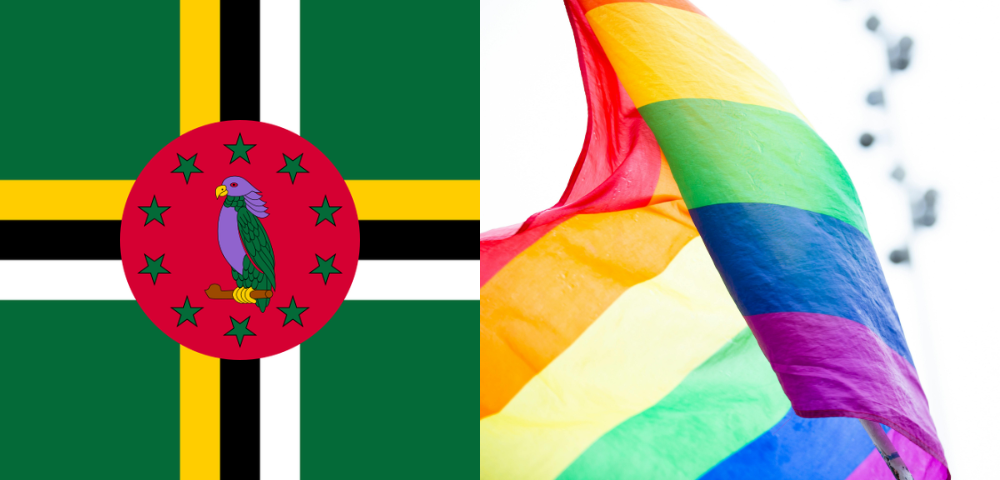
Wearers are carers
In September, Sydney Star Observer reported an elderly Sydney woman was taking legal action after she was asked to leave her volunteer position at the Red Cross because she cared for her HIV-positive nephew.
The woman, who volunteered at the Parramatta Red Cross tea room, told her manager she cared for her nephew and two weeks later noticed she had not been rostered on to her usual shift. When she confronted a manager, the reason given was concern that other volunteers or patrons might contract the virus from her.
While the Red Cross immediately issued a written apology and promised to provide training for staff, the incident is clear proof there is still worrying ignorance about the facts of HIV.
As we head towards World AIDS Day on December 1 the theme ‘Take action. No discrimination’ seems particularly apt when reflecting on this case, decades after AIDS-hysteria first swept Australia.
While Australia fares better than some of our closest neighbours on the transmission front — reports show Papua New Guinea has a 2 percent population rate of HIV — National Association of People Living With HIV/AIDS executive officer Jo Watson believes that in some cases Australia is moving backwards, not forwards, when it comes to stigma associated with HIV.
“Consistently all the social research reports and all the surveys reported on from positive people themselves … rate stigma and discrimination as one of the most pressing and considered impacts on people’s lives,” Watson said.
While many people living with HIV/AIDS have become resilient to stigma over the years, Watson said there are ways to tackle the problem, largely through public education campaigns.
“One of the things we’ve just done, as the new [national] HIV strategy is being developed, is using stigma and discrimination as not some vague term but a piece of work that needs to be measured and needs to be focused on with intervention so we can try and reduce those impacts,” she said.
Australia is currently experiencing a plateauing of HIV transmission rates, with 995 new cases reported in 2008 compared with 1051 in 2007 — although many would suggest 995 is still too many.
There has also been rising concern among HIV bodies that the law is being used as a blunt tool to tame those accused of ‘recklessly’ infecting or putting others at risk of HIV.
“The criminalisation of HIV people in this country has been a real issue for positive people and their communities, and added to that has been the impacts as it’s been reported on or covered in various media,” Watson said.
“Provocative stories and heightened cases that look to the more unseemly or sensationalist type of coverage have all added to a heightened sense of stigma being felt by people living with HIV around the country.”
Watson said creating a climate of fear around HIV disclosure could end up hampering HIV prevention efforts.
“There is real fear about the way that HIV-phobia is being whipped up in the broader general community sense and the lack of responsibility of a lot of the [media] coverage … these sorts of charges are actually going to undermine health promotion efforts.
“HIV criminalisation deals front and centre with the fact that criminal laws are being enacted on the basis that they’re carrying a specific disease and we think that’s wrong.”
On the good news front, the Federal Government has included a number of new HIV medications in the Pharmaceutical Benefits Scheme, including medication for facial lipoatrophy.
There also seems to be a renewed push for national HIV strategies with the establishment of the Parliamentary Liaison Group on HIV/AIDS led by Senator Louise Pratt and the Ministerial Advisory Committee on Bloodborne Viruses and Sexually Transmitted Infections, both established, or reincarnated, this year.
But as always, the proof is in the pudding.
“Our constant challenge is getting a sense of Commonwealth leadership around dealing with HIV in this country… we’ve drifted over the last several years,” Watson said.
“We’re still frustrated having not signed off on a new HIV strategy. We expect that to happen in early 2010 and the challenge is going to be in an increasingly competitive funding environment.”
Widely publicised development trials in Thailand for a new HIV vaccine also offered fleeting hope this year which has since dimmed.
Australasian Society for HIV Medicine chief executive officer Levinia Crooks said the road to a vaccine is still long.
“I think we’ve already learned in HIV medicine that a vaccine’s going to be difficult,” Crooks said.
“Even with the initial data that came out saying it was 30 percent effective, that’s a long way before you can say it is a particularly effective vaccine.
“The way I thought of that at the time was, it’s the first time we’ve seen something positive which means perhaps we’re going in the right direction.
“It was an interesting dynamic because we had two vaccines, or two bits of vaccines, that had proved not to be useful used separately, but used in combination they were effective.”
So how far have we come with HIV and with current treatments available? Can we finally say we have a grip on the virus?
Or, with transmission rates fluctuating over the last decade, is the virus still as unpredictable as ever?
“I think it’s been pretty predictable all the way along,” Crooks said.
“We know how infection occurs, we know that people are most infectious early on in the infection… so a person gets infected and they’re more likely to transmit a virus while they’re early on in their infection, probably before they even know they’re infected.
“It’s predictable that unless we’re vigilant all the time, we will continue to see new infections.”
AIDS Awareness Week Events
Nov 27-Dec 01: Red Ribbon Appeal
Nov 27: Big Red Bingay @ Paddington RSL from 7.30pm. Bookings: 9206 2110
Nov 29: Under the Mirrorball @ Arq
Nov 29: World AIDS Day Picnic @ Sydney Park, from noon.
Dec 01: Candlelight Memorial, 8pm Paddington Town Hall, Register 9206 2110
Dec 01: Buy a red ribbon from a street vendor or outlet. Details: www.redribbonday.org.au
Dec 04: In Bed With A Porn Star, 9pm, Midnight Shift.
Dec 06: World AIDS Day concert @ York Theatre, Seymour Centre. Tickets: 9351 7940
Red Ribbon vendor locations
CBD
Circular Quay Station
Wynyard Station
Central Station
Town Hall Station
Martin Place Station
Hyde Park
Martin Place
Queen Victoria Bldg
Darlinghurst
Taylor Square
King Cross
Kings Cross Station
El Alamein Fountain
Newtown
The Hub









